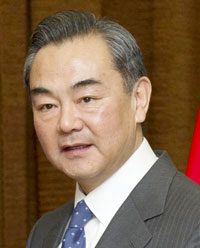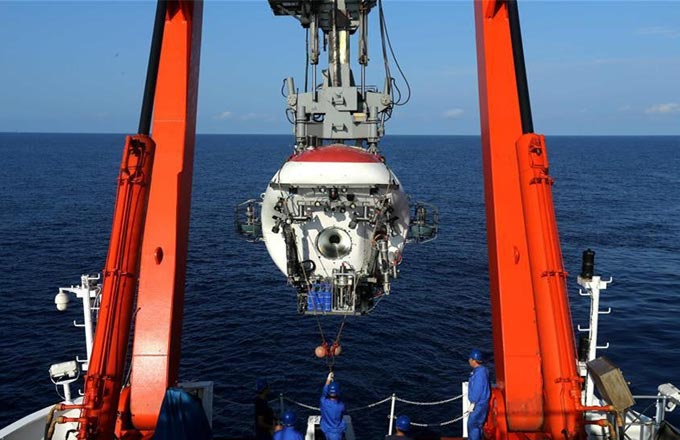Foreign minister chides Japan's 'lack of common sense'
Tokyo should not make remarks that show "a lack of common sense" regarding key postwar documents and Japan's history of stealing China's territory, Foreign Minister Wang Yi said on Monday.
 |
|
Wang Yi Foreign Minister |
The minister was responding to Tokyo's rejection of Premier Li Keqiang's warning about Japan's challenge to postwar order.
Li warned Japan on Sunday against any attempt to ignore key legal documents that returned occupied islands to China.
The premier gave the warning in a speech after his visit to the Cecilienhof palace in Potsdam, Germany, where the Potsdam Proclamation was issued in 1945, which outlined the terms for Japan's surrender in World War II.
Li stressed that Article 8 of the proclamation makes clear that "the terms of the Cairo Declaration shall be carried out", adding that the declaration states that all territories that Japan stole from China, such as Northeast China, Taiwan and related islands, should be returned to China.
According to key documents, China's Diaoyu Islands in the East China Sea, which were stolen by the Japanese government during the Sino-Japanese war (1894-95), should be returned to China.
"Chinese people will not accept any comments or actions that seek to deny or glorify the history of fascist aggression; nor are these acceptable to the forces of justice elsewhere that value peace," Li said.
Japanese Chief Cabinet Secretary Yoshihide Suga said at a news conference on Monday that Li's remark "ignores history", and that Japan "can never accept it", Kyodo News Agency reported.
Sino-Japanese relations have been strained since the Japanese government illegally "nationalized" part of the Diaoyu Islands in September.
"We urge such people to become sincere students once again, to have another look at the Declaration of Cairo and the Potsdam Proclamation, and never again say such words that defy common sense," Wang said.
Denial of militarism
Meanwhile, China's marine surveillance ships continued patrolling the waters off the islands on Tuesday, the Japanese coast guard said.
Lu Yaodong, director of the department of Japanese diplomacy of the Institute of Japanese Studies at the Chinese Academy of Social Sciences, warned that the Japanese government recently has demonstrated a tendency to expand denial of its wartime deeds.
"Starting with denying its aggression toward its Asian neighbors, Japan now seems to have planned to overthrow the whole of world order after World War II," Lu said.
In the joint communique signed by China and Japan in 1972, the year they normalized diplomatic relations, Japan clearly states that "it firmly maintains its stand under Article 8 of the Potsdam Proclamation", Foreign Ministry spokesman Hong Lei said at a Tuesday news conference in Beijing.
Today mass media and public opinion pay more attention to Japan's militarist past regarding its neighbors, including China, but "the Chinese premier's speech sent an alert to the international community on the rumbling impulses that attempt to whitewash the whole war", Lu said.
Zhou Yongsheng, a Japanese studies expert at China Foreign Affairs University, said the Japan's current Cabinet has shown a stronger desire to revise the country's pacifist constitution and justify its militarist past.























